|
[VIEWED 12799
TIMES]
|
SAVE! for ease of future access.
|
|
|
|
|
|
gahugoro

Please log in to subscribe to gahugoro's postings.
Posted on 03-09-07 1:50
PM
Reply
[Subscribe]
|
Login in to Rate this Post:
0  ?
? 
|
| |
I really worry about the earthquake in Nepal. People really need to be aware for the disaster prevention in advance. No political forces can save from this disaster. Kathmandu will really get devastated. There are many bahals and houses in old toles, which are more vulnerable.
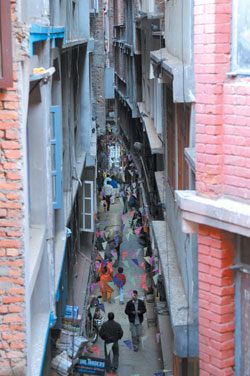
|
| |
|
|
|
|
gahugoro

Please log in to subscribe to gahugoro's postings.
Posted on 03-09-07 1:51
PM
Reply
[Subscribe]
|
Login in to Rate this Post:
0  ?
? 
|
| |
Picture sources: today's Nepali Times.
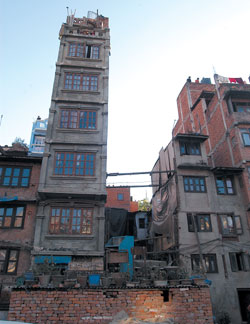
|
| |
|
|
AznshawtY

Please log in to subscribe to AznshawtY's postings.
Posted on 03-09-07 1:53
PM
Reply
[Subscribe]
|
Login in to Rate this Post:
0  ?
? 
|
| |
i think its a earthquake free country, isnt it? i havent heard of earthquakes in nepal :o ofcourse besides the late 90s one?
|
| |
|
|
bidhan40

Please log in to subscribe to bidhan40's postings.
Posted on 03-09-07 1:58
PM
Reply
[Subscribe]
|
Login in to Rate this Post:
0  ?
? 
|
| |
well az nepal is not earthquake free rather nepal is one of the places in earth which is prone to the earthquake. There is a very big earthquake normally in every 80 years in Nepal. So if we go by the research , we are more likely to have a big earthquake of around 6 or mroe richter scale within 6 years.
|
| |
|
|
gahugoro

Please log in to subscribe to gahugoro's postings.
Posted on 03-09-07 2:16
PM
Reply
[Subscribe]
|
Login in to Rate this Post:
0  ?
? 
|
| |
Nepal lists the top 10 if not top 20 most earthquake vulnerable countries. following table source: www.geohaz.org/contents/projects/kathmandu.html

|
| |
|
|
AznshawtY

Please log in to subscribe to AznshawtY's postings.
Posted on 03-09-07 2:21
PM
Reply
[Subscribe]
|
Login in to Rate this Post:
0  ?
? 
|
| |
interesting bids, and how are you?
|
| |
|
|
sndy

Please log in to subscribe to sndy's postings.
Posted on 03-09-07 2:26
PM
Reply
[Subscribe]
|
Login in to Rate this Post:
0  ?
? 
|
| |
Those pictures sure look scary...
|
| |
|
|
gahugoro

Please log in to subscribe to gahugoro's postings.
Posted on 03-09-07 2:34
PM
Reply
[Subscribe]
|
Login in to Rate this Post:
0  ?
? 
|
| |
GHI's evaluation of what another quake like 1934's would do is numbing— More than half of the city's bridges would be heavily damaged. The entire water system, sewer system, telephone system, and electric power system would be disabled. Six in ten buildings would be seriously damaged. The city has seven fire engine brigades. The homeless would number somewhere around seven hundred thousand. Deaths would number somewhere around forty thousand. The dead in Nepal are usually cremated. Each cremation uses more than a ton of wood. Injuries would number in the hundreds of thousands. Kathmandu has about 2100 hospital beds in twelve hospitals. Half of these would be unavailable due to damage. Kathmandu has 700 doctors. The airport is almost surrounded by land subject to liquefaction. This would seriously hamper the arrival of outside aid. http://geology.about.com/library/weekly/aa011600a.htm

|
| |
|
|
bidhan40

Please log in to subscribe to bidhan40's postings.
Posted on 03-09-07 3:31
PM
Reply
[Subscribe]
|
Login in to Rate this Post:
0  ?
? 
|
| |
az ma ta thik chu. how are you? haven't seen you for a long long time now? Kata harayau timi?
|
| |
|
|
gahugoro

Please log in to subscribe to gahugoro's postings.
Posted on 03-09-07 3:56
PM
Reply
[Subscribe]
|
Login in to Rate this Post:
0  ?
? 
|
| |
http://www.searo.who.int/LinkFiles/Nepal_-_EPR_Publications_assessment-hospital-app2.pdf http://www.janathakshan.org/sapd/pdf/AmodDixitNepal.pdf http://unpan1.un.org/intradoc/groups/public/documents/APCITY/UNPAN019514.pdf
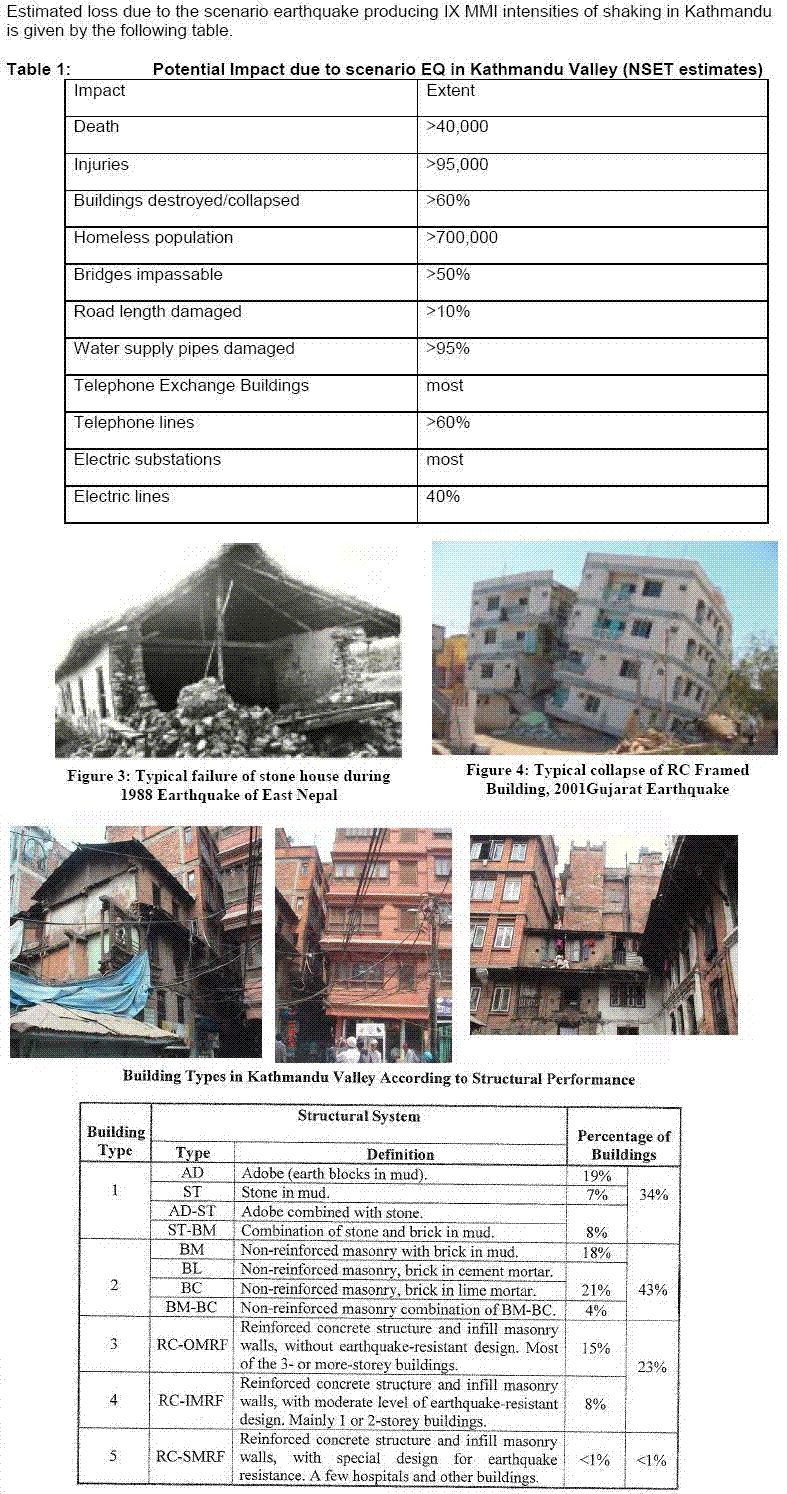
|
| |
|
|
bidhan40

Please log in to subscribe to bidhan40's postings.
Posted on 03-09-07 4:07
PM
Reply
[Subscribe]
|
Login in to Rate this Post:
0  ?
? 
|
| |
maile ta more than 6 richter scale ko earthquake every 80 years ma repeat huncha bhanya ta more than 8 richter scale po rahechaa. It is really dangerous. Last time we had more than 8 richter scale was in 1990 BS. so, 1990 +80 = 2070 BS we are almost in 2064 BS. So we can have really devastating earthquake in next 6 years of over 8 richter scale.
|
| |
|
|
Nepal ko chora

Please log in to subscribe to Nepal ko chora's postings.
Posted on 03-09-07 4:16
PM
Reply
[Subscribe]
|
Login in to Rate this Post:
0  ?
? 
|
| |
Here is an old article (published OCTOBER 10, 2005) but relavant to this discussion.. Himalayas may be due for Powerful earthquakes !! Powerful earthquakes - magnitude 8 or larger - occurred in the Himalayas in 1803, 1833, 1897, 1905, 1934 and 1950. But in the past half century, the region has been relatively quiet, with no earthquakes anywhere near the magnitude 7.6 quake that struck northern Pakistan on Saturday. That calm may have given a false sense of security to growing populations of people living there. "Those of us in the business knew we were overdue," said Peter Molnar, a professor of geological sciences at the University of Colorado. Molnar was a co-author of a 2001 article in the journal Science that looked at the history of Himalayan earthquakes and how much tectonic stress was building up as the Indian subcontinent crashes into Asia. The Science article warned, "Several lines of evidence show that one or more great earthquakes may be overdue in a large fraction of the Himalaya, threatening millions of people in that region." Steven Wesnousky, director of the Center for Neotectonic Studies at the University of Nevada in Reno, said earthquakes with magnitudes similar to the one on Saturday could happen at almost any time along any part of the Himalayas. "It might not occur for 10 to 20 years, but if it occurred tomorrow, it wouldn't be a surprise," he said. Quakes like the one that struck the subcontinent on Saturday are "really relatively small compared to the largest earthquakes that zone is capable of producing," Wesnousky said. "That's the scary part." The Indian subcontinent slides northward about 4 centimeters, or 1.6 inches, a year as part of the natural movement of the continental plates. Half of that motion is absorbed farther to the north in Asia, but the other half puts pressure on the Himalayan mountains, continually building up strain in the rocks that form the mountain ridge. Wesnousky and his colleagues have found that one or two earthquakes, of magnitude 8.5 to 9, struck sometime in the 1400s or 1500s. He said it was not yet clear whether the faults all broke at once or whether two different sections broke at different times to cause two separate earthquakes. For a quake with the magnitude of the one on Saturday - or of about the same magnitude that hit San Francisco in 1906 - the fault slips perhaps 2.5 to 3.5 meters, or about 3 yards to 6 yards. In more powerful earthquakes, the fault slips up to five times as much. "We see displacements on the order of 15 or 20 meters or more that occurred during these earthquakes," Wesnousky said. Geologists' understanding of the earthquakes is inadequate for predicting whether the earthquake Saturday will lead to a larger, more catastrophic one. "There isn't really anything we can say," Wesnousky said. "It's difficult to say whether they are a foreshock or not." Wesnousky said indications so far were that it took a fault 1,000 years to build up enough strain to unleash such a powerful earthquake. Because the last mega-earthquakes occurred about 500 years ago, the next ones of that scale could be centuries in the future. But a section of the fault near Nepal may not have broken since about the year 1100, so it may be due. The Asian continent - not including Japan - has also been quiet in recent decades. Molnar said that from 1897 to 1957, there were 10 to 15 earthquakes as large as or larger than the one Saturday. "Then, nothing of comparable magnitude until 2001," Molnar said, though there were two of magnitude 7.5 in China in the 1970s. Source: http://www.iht.com/articles/2005/10/10/news/big.php
|
| |
|
|
gahugoro

Please log in to subscribe to gahugoro's postings.
Posted on 03-09-07 4:50
PM
Reply
[Subscribe]
|
Login in to Rate this Post:
0  ?
? 
|
| |
http://www.itc.nl/unu/dgim/unedra/refresher/_docs/lectures/20_09_2005_earthquake_hazard_and_risk_assessment.pdf Can you believe that the picture at the top right hand side is real?
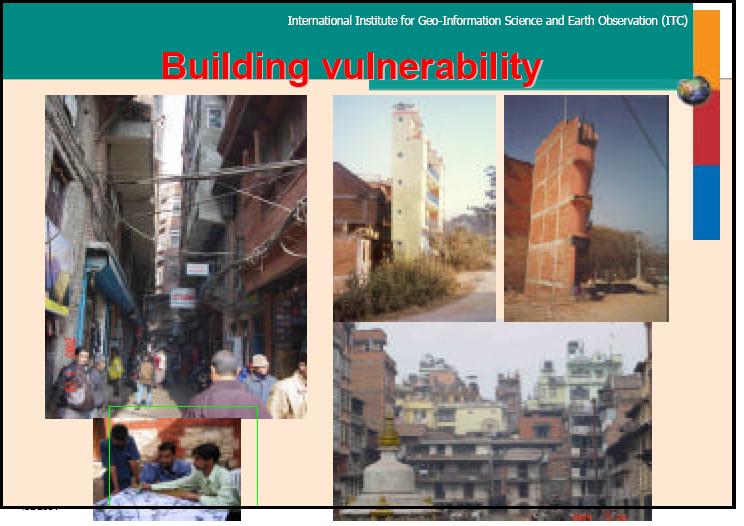
|
| |
|
|
gahugoro

Please log in to subscribe to gahugoro's postings.
Posted on 03-09-07 4:52
PM
Reply
[Subscribe]
|
Login in to Rate this Post:
0  ?
? 
|
| |
http://www.tectonics.caltech.edu/publications/NepalBrochure3-2006.pdf
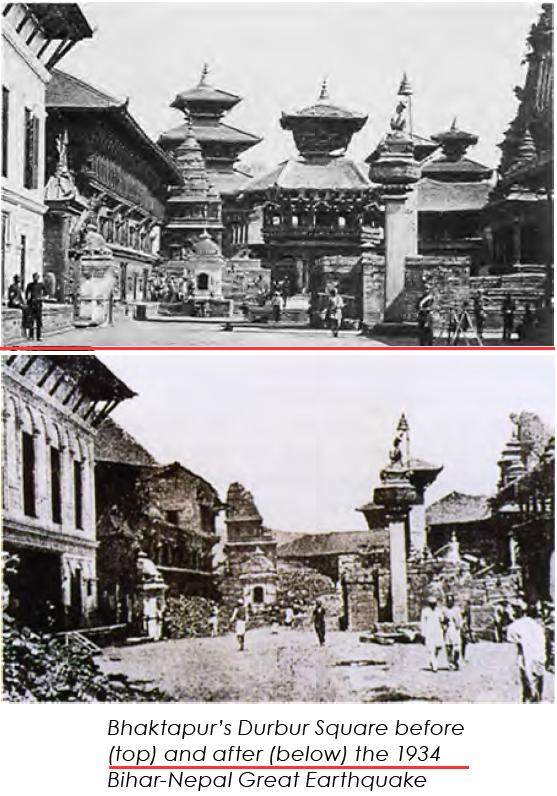
|
| |
|
|
gahugoro

Please log in to subscribe to gahugoro's postings.
Posted on 03-09-07 5:09
PM
Reply
[Subscribe]
|
Login in to Rate this Post:
0  ?
? 
|
| |
So, what is an earthquake? Just the shaking of the ground and destruction or is there more? Well, most people who are unaware of what earthquakes are tend to define an earthquake as a disastrous event that causes nothing but destruction. This is true to some extent but if it were not for earthquakes, the map of Nepal would be very different today. The Himalayan range that we are proud of today is a formation made from earthquakes. They are formed resulting from intracontinental collision of the Indian Plate with the Eurasian Plate. The Indian Subcontinent drifts northward beneath the Eurasian Plate at a rate of 2 cm per year that creates every 200 years or so a series of great earthquakes. Significant property damage and/or loss of life following an earthquake are an ever-present threat and apply to all natural disasters. The recent historical example is 1934 Bihar-Nepal earthquake that reached 8.4 on the Richter scale with an intensity of X. Over 8000 people died, 15,000 were injured and 200,000 houses destroyed. A large earthquake of magnitude 8 or more has not occurred in Nepal for last 69 years. It will occur but, When? Where? Another vital question is "are we well prepared for the impending earthquake?" Kathmandu’s population and building construction has increased more than 10 times compared to time of the 1934 earthquake. The increased density of population and buildings in the city means that more people are at risk from earthquakes as compared to that of 69 years ago. If a major earthquake should strike now, the deaths and damages are feared to go up more than 10 folds. It is estimated that depending upon the time of the earthquake some 40,000 people could perish. The country has become much more vulnerable to seismic disaster than ever before due to rapid population expansion and uncontrolled urbanisation. This trend is intensifying rapidly everyday. The scale of potential human suffering will be much greater in terms of deaths, injuries, incidence of shock and bereavement incorporated with subsequent disease and long-term illness. http://www.nepalnews.com.np/contents/englishweekly/sundaypost/2003/feb/feb16/2ndpage.htm When an earthquake of the magnitude that just occurred in Pakistan hits Kathmandu and the hills of Nepal…. Tens of thousands will die immediately and be injured as poorly constructed brick buildings collapse. There will be no effective system for bringing in relief. The two roads to the plains of India will almost certainly be blocked; The airport, which is built on lakebed sediments, could well be unusable; Roads, bridges and other infrastructure that links communities within Kathmandu will be damaged and blocked; Rural areas are likely to be completely inaccessible; Water supply and sanitation systems – two of the most important needs for survival – will collapse. Disease will spread rapidly due to disruption of water supply and sanitation systems. Within days the immediate impacts of the quake will be compounded by disease as sanitation collapses and hundreds of thousands of people are forced to depend on whatever water they can find. An earthquake of magnitude 8 or greater is all but inevitable in the Kathmandu region. The only question is when? http://www.i-s-e-t.org/nepaleq.html
|
| |
|
|
gahugoro

Please log in to subscribe to gahugoro's postings.
Posted on 03-09-07 5:10
PM
Reply
[Subscribe]
|
Login in to Rate this Post:
0  ?
? 
|
| |
Photo source: http://www.undp.org/bcpr/disred/documents/regions/asia/nepal_prepI.pdf
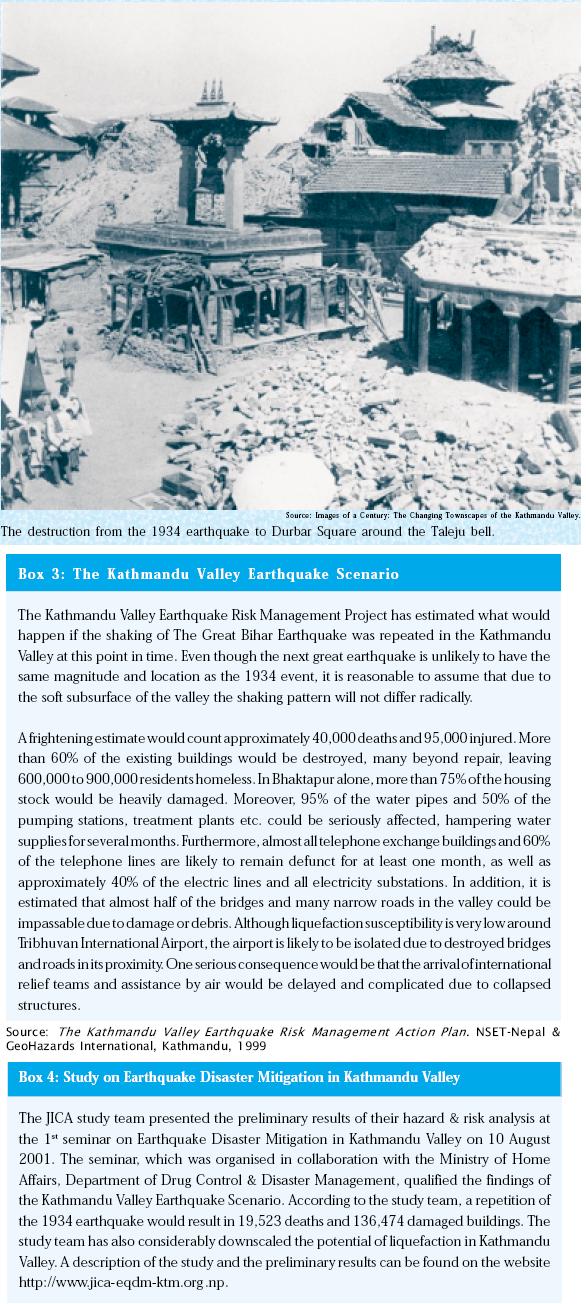
|
| |
|
|
gahugoro

Please log in to subscribe to gahugoro's postings.
Posted on 03-09-07 5:45
PM
Reply
[Subscribe]
|
Login in to Rate this Post:
0  ?
? 
|
| |
http://www.hyogo.uncrd.or.jp/school%20project/pdf/2006NepalWS%20Presentation%20Mahesh.pdf http://www.mof.gov.np/economic_policy/pdf/Natural_Disasters.pdf http://unpan1.un.org/intradoc/groups/public/documents/APCITY/UNPAN019548.pdf
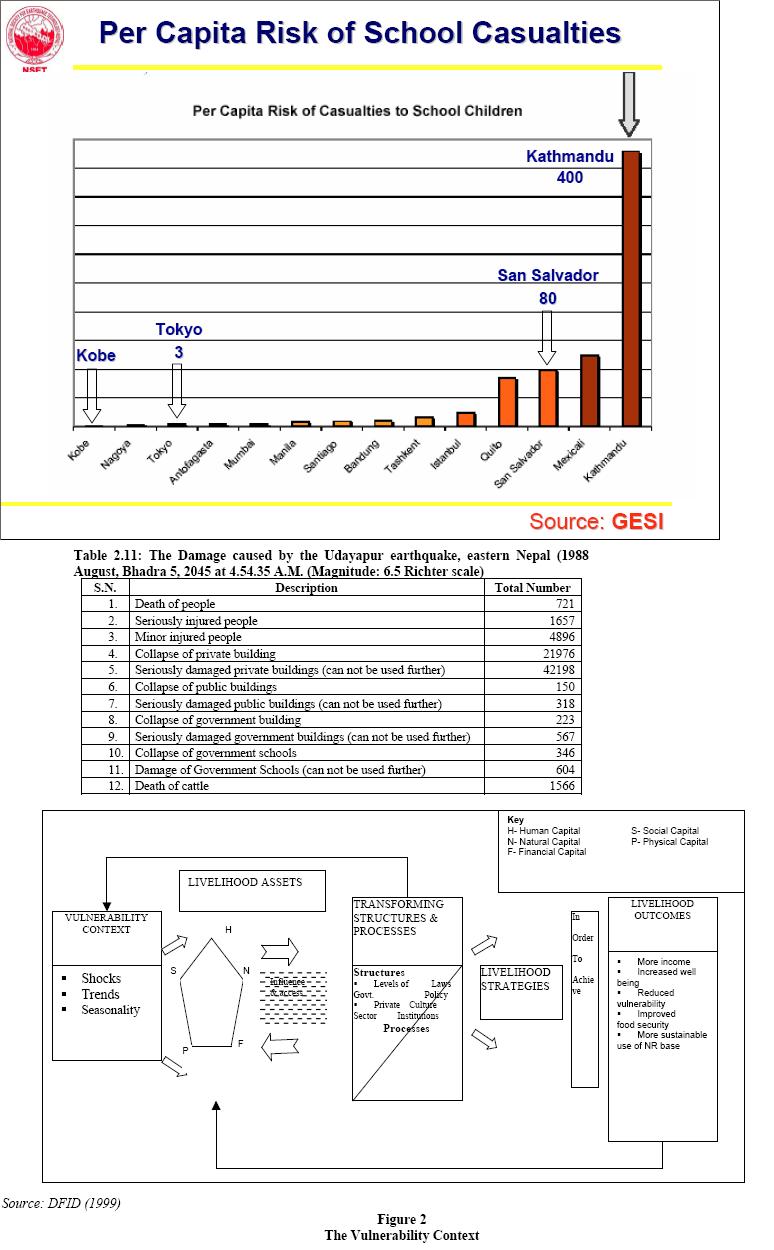
|
| |
|
|
gahugoro

Please log in to subscribe to gahugoro's postings.
Posted on 03-09-07 9:24
PM
Reply
[Subscribe]
|
Login in to Rate this Post:
0  ?
? 
|
| |
http://itc.eu/research/policy/spearhead3/vwesten/PaperSLARIM.PDF
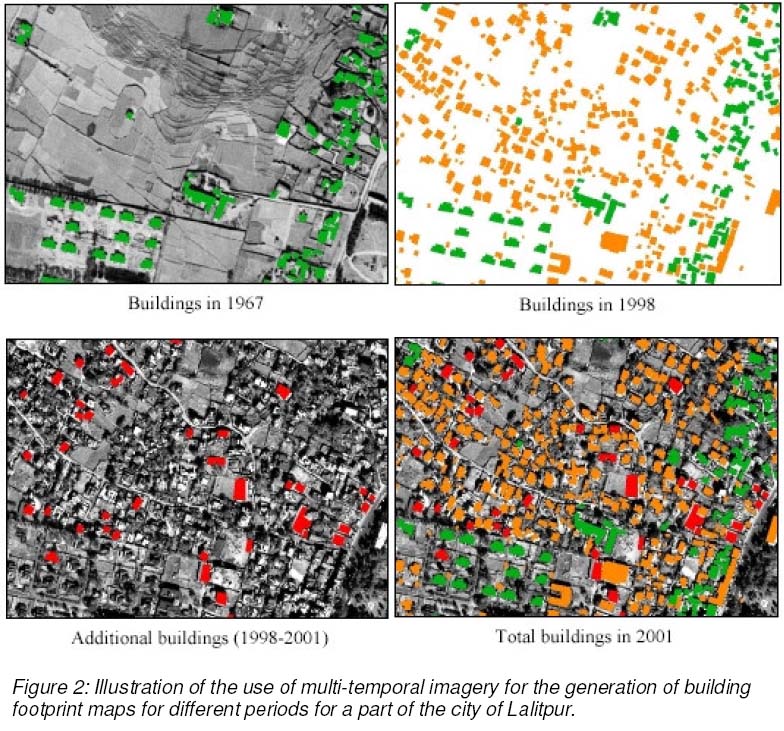
|
| |
|
|
gahugoro

Please log in to subscribe to gahugoro's postings.
Posted on 03-09-07 9:31
PM
Reply
[Subscribe]
|
Login in to Rate this Post:
0  ?
? 
|
| |
http://www.thdl.org/texts/reprints/nepali_times/Nepali_Times_281.pdf
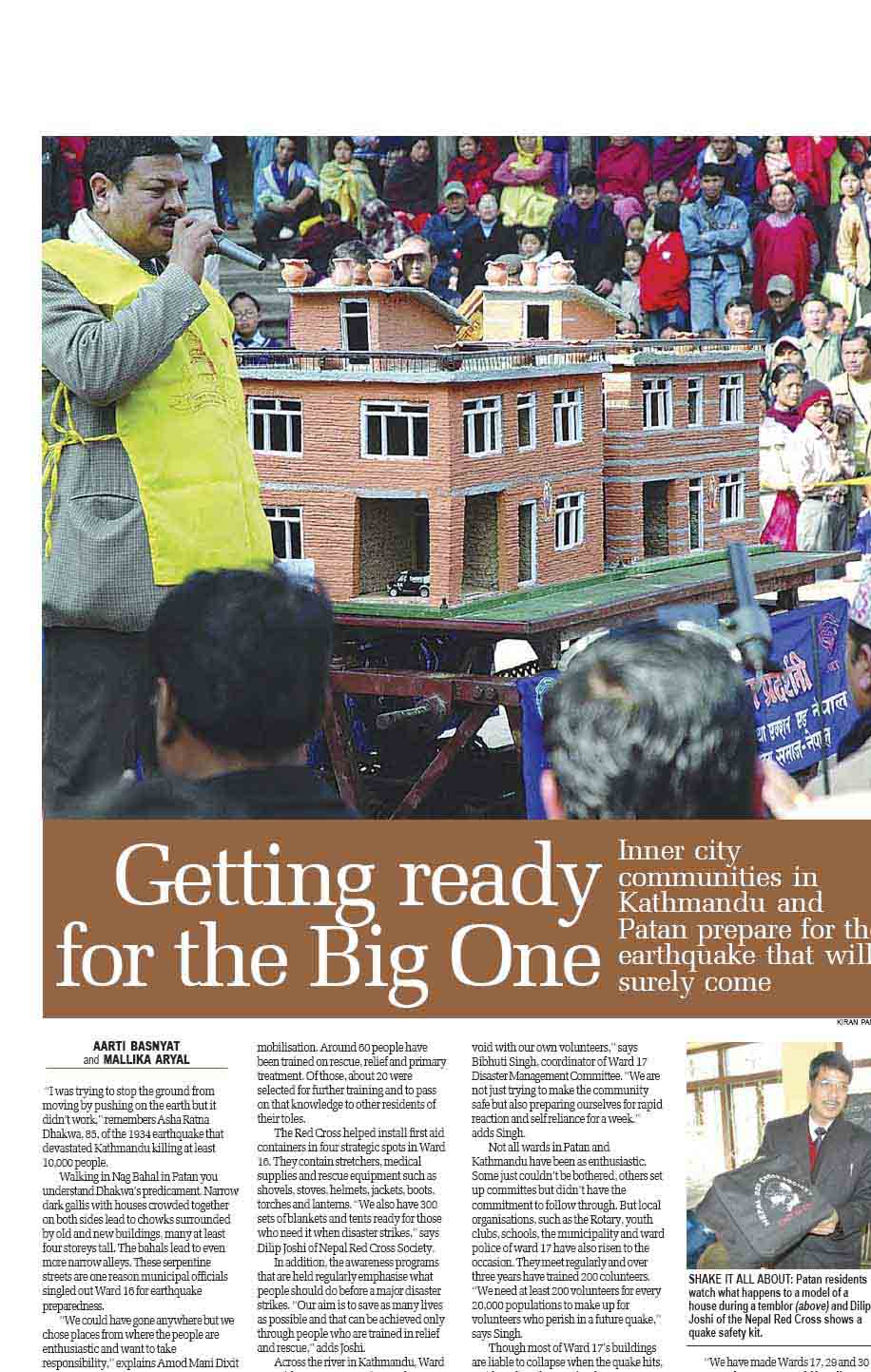
|
| |
|
|
gahugoro

Please log in to subscribe to gahugoro's postings.
Posted on 03-09-07 9:35
PM
Reply
[Subscribe]
|
Login in to Rate this Post:
0  ?
? 
|
| |
same source
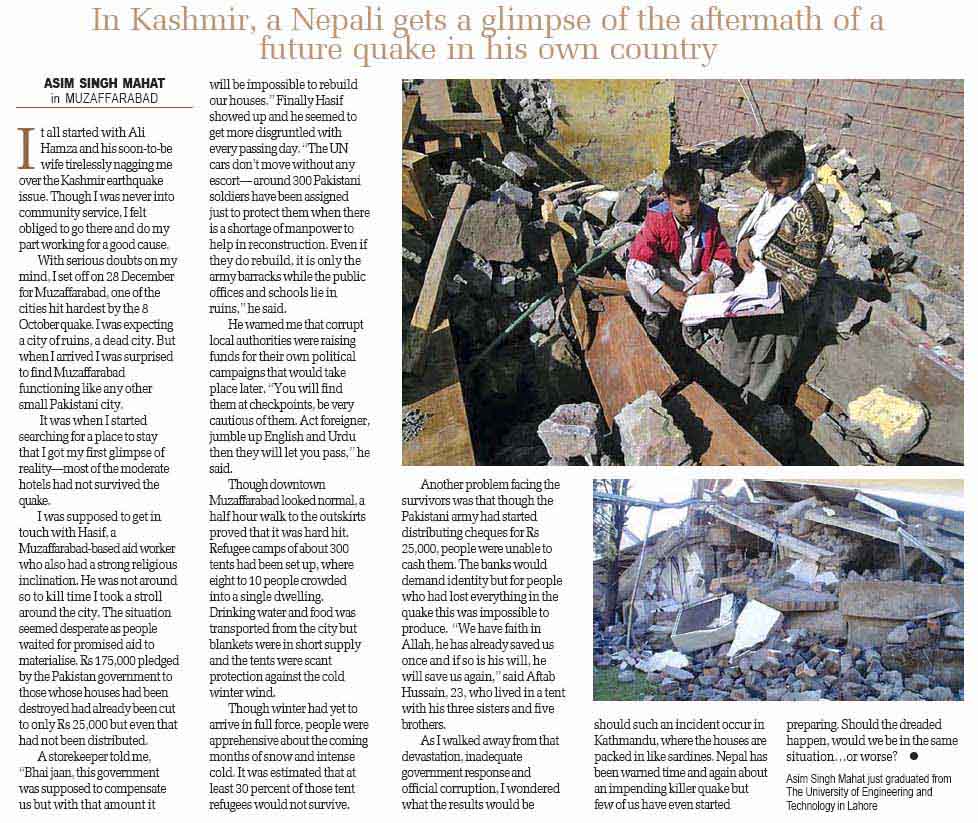
|
| |
